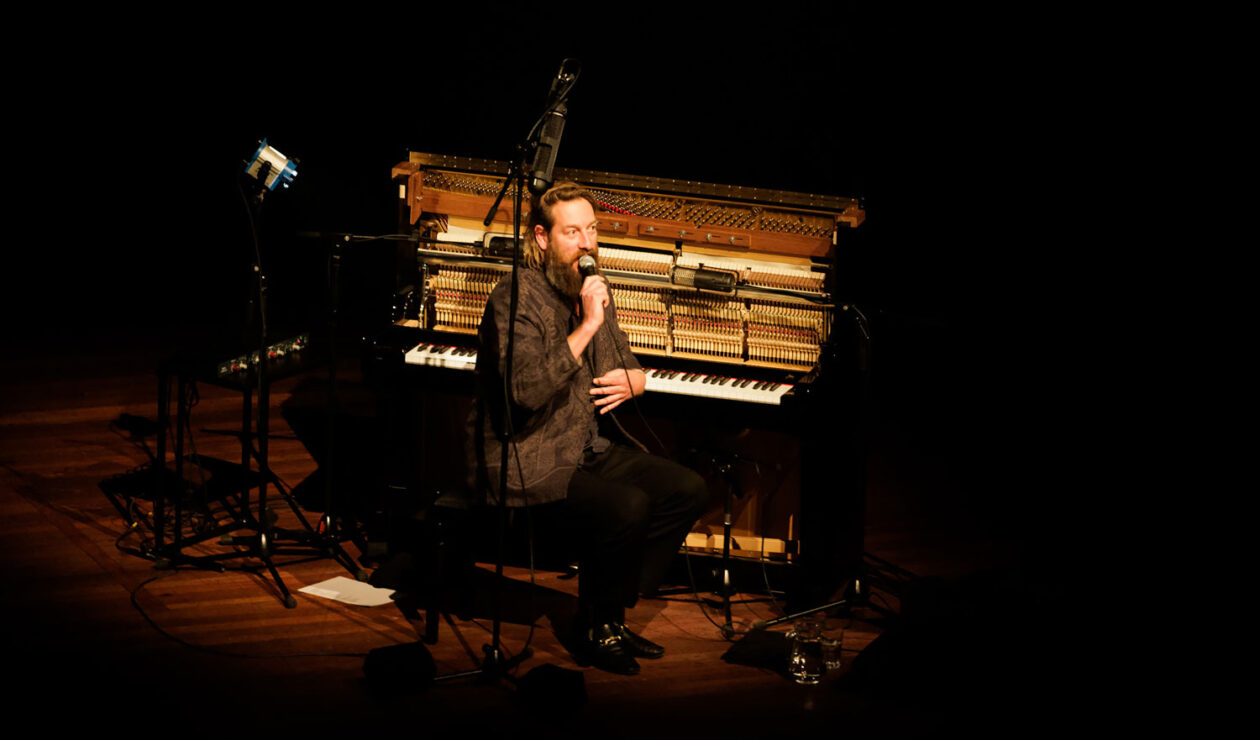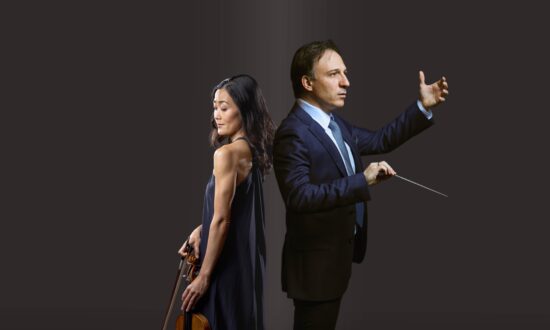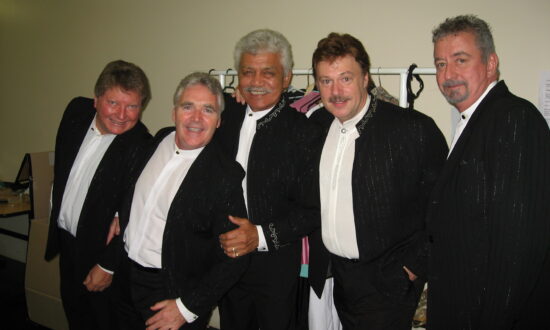The idea of a piano recital is synonymous with an image of a grand piano. For most, it is impossible to imagine anything else. For many, it would even be cause for alarm to see something other than a grand piano onstage whilst taking one’s seat in a concert hall.
It is therefore not inconceivable that a few patrons of Her Majesty’s Theatre were alarmed upon entering the concert hall last night, to see the first Australian show of Joep Beving’s Hermetism tour. A few light fixtures were suspended from the ceiling, a lamp stood unobtrusively to the side, and a small table stood next to an upright piano in the middle of the stage.
The concert began in total darkness. The lamp next to the piano was then slowly turned on, casting a faint orange glow across the mechanism of the piano. The front panel of the instrument had been removed, exposing the hammers, strings and dampers to the audience, and for a good while, this was all that anyone could see. Beving then silently walked onstage and took his seat at the piano. Gradually, the music began, starting with a single note.
At this stage, the piano was muted, with its resonance muffled; the sound of the music hanging in the air with a whispery fragility. Each melody brought forth a new shimmer from the light fixtures, which glimmered and glid gently above the unfolding music. They were at once totally inconspicuous and utterly entrancing.
Beving did not speak at length during the recital. Indeed, even more so than convention dictates, the show was mostly left to speak for itself. There was no program, no setlist, and only a few songs were announced from the stage at key moments, which, combined with Beving’s explanations of their significance, provided narrative coherence to the concert.
As Beving introduced the song “Pax”, the tenor of the music became bolder, and the mute was shortly removed from the piano, allowing the instrument to sing out a little more. Then, its newfound brightness was undercut by the aching tragedy of the composition “For Mark”, a beautiful homage to Beving’s former manager and friend who had died of cancer just short of a year prior.
These changes in tone gave context to the music and added extra weight to Beving’s compositions, which are constructed with a frankness and simplicity that belies their emotional heft.
The last few songs presented the heftiest emotions of all.
Beving’s final introduction was for the song “Sleeping Lotus”, written about his daughter, and the lights dimmed; the whole concert suddenly reduced to almost nothing. From this delicacy, Beving flowed seamlessly into the powerful crescendo of the song “Hanging D”, which built to the highest peak of the evening.

Get InReview in your inbox – free each Saturday. Local arts and culture – covered.
Thanks for signing up to the InReview newsletter.
As Beving played, the diminutive upright piano roared at the audience – and then abruptly dropped to silence (and darkness) at the end. The concert was over.
Beving’s approach to a piano recital is truly unique. Earlier this month, I interviewed him for InReview, and he spoke about the pains that he and visual collaborator Boris Acket had taken to ensure that they were not just taking a conventional performance and “sticking something new onto it”, instead creating an immersive experience. It is impossible to deny that this has been done successfully.
Joep Beving presented Hermetism at Her Majesty’s Theatre as part of the Illuminate Adelaide program.
Edmund Black, a pianist and recent graduate from the Elder Conservatorium of Music at the University of Adelaide, is the 5th recipient of the Helpmann Academy InReview Mentorship. He is working with Graham Strahle to write a series of articles for publication in InReview.
Support local arts journalism
Your support will help us continue the important work of InReview in publishing free professional journalism that celebrates, interrogates and amplifies arts and culture in South Australia.
Donate Here




